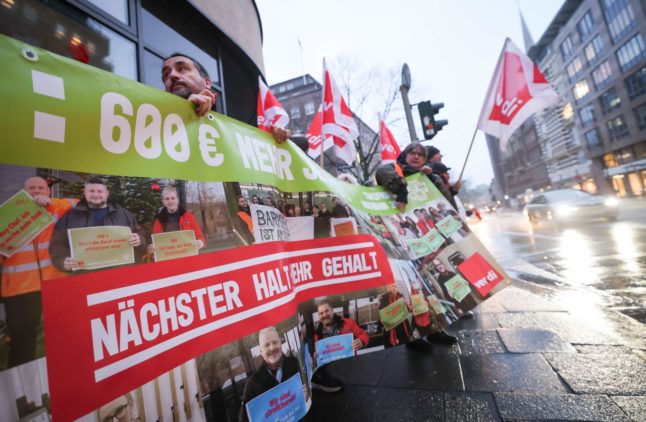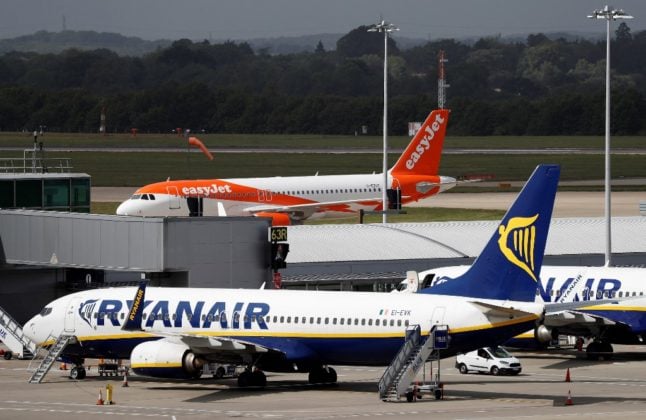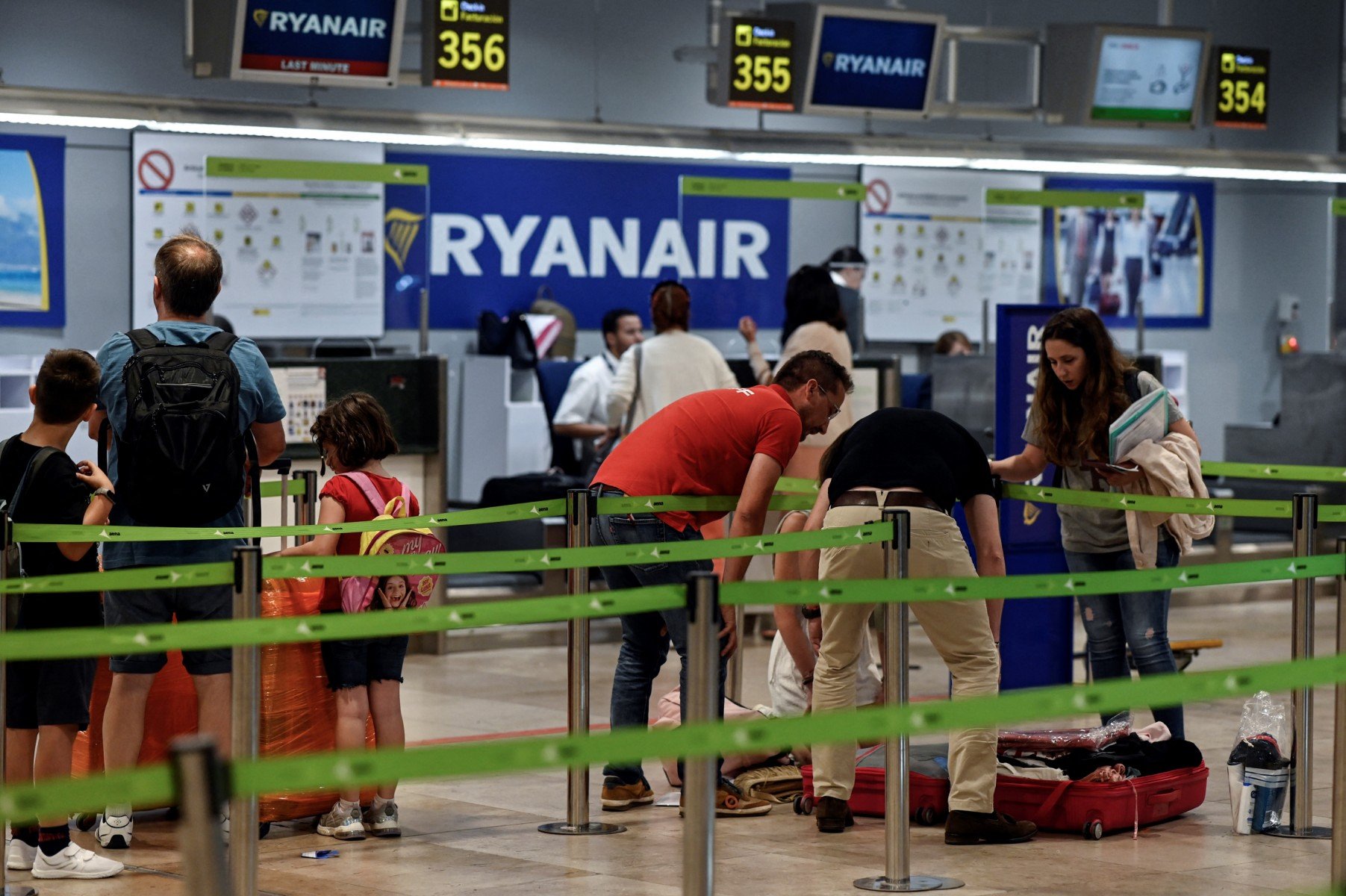The strike began at 3am on Wednesday morning and paralysed large swathes of Hamburg’s transport network, forcing passengers to find alternative routes or stay at home.
Hochbahn spokesperson Christoph Kreienbaum said the decision was made to cancel all underground services amid fears that passengers’ safety could be compromised in overcrowded trains.
Passengers were advised to find different ways of getting to their destinations by checking the HVV app. Ferries and S-Bahn trains were still operating on Wednesday, as were bus services run by the Hamburg-Holstein (VHH) transport company.
READ ALSO: Why Germany could soon see widespread public sector strikes
Around 600,000 passengers use bus and train services run by Hamburg Hochbahn each day. Commuters reported severe congestion on the roads as people opted to take cars and taxis instead of public transport.
Parents were also given the chance to deregister their children from school for the day if the journey proved to be too difficult.
The warning strike was due to run until 3am on Thursday morning, ahead of another round of pay negotiations.
German union Verdi is demanding pay increases of €600 per month for the 6,000 employees of Hochbahn and has argued that inflation is eating into workers’ salaries.
In addition, the union wants trainees to receive an additional €258 per month and a free ticket for public transport.
Meanwhile, Hochbahn has offered a wage increase of 4.5 percent, but at least €150 this year and €3,000 to compensate for inflation.




 Please whitelist us to continue reading.
Please whitelist us to continue reading.
Member comments